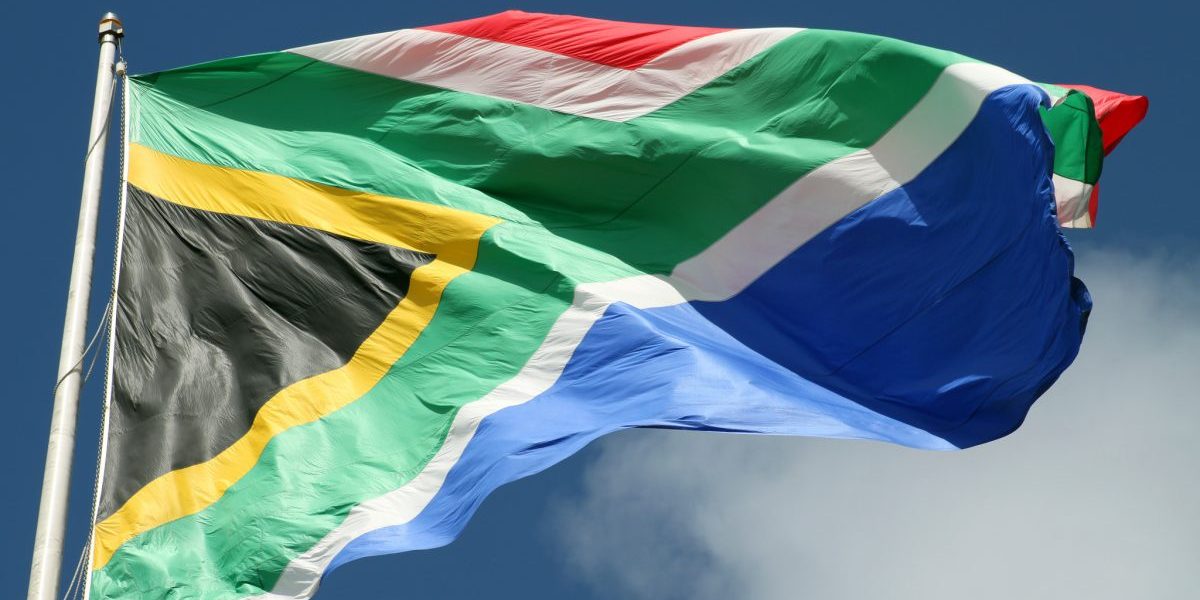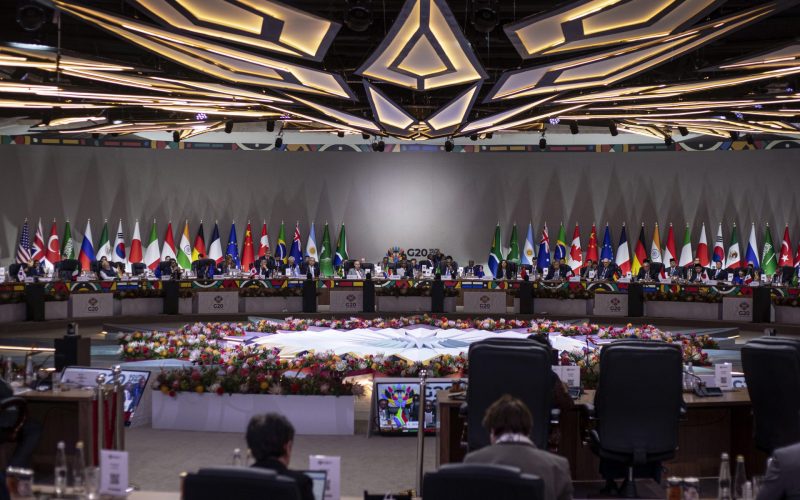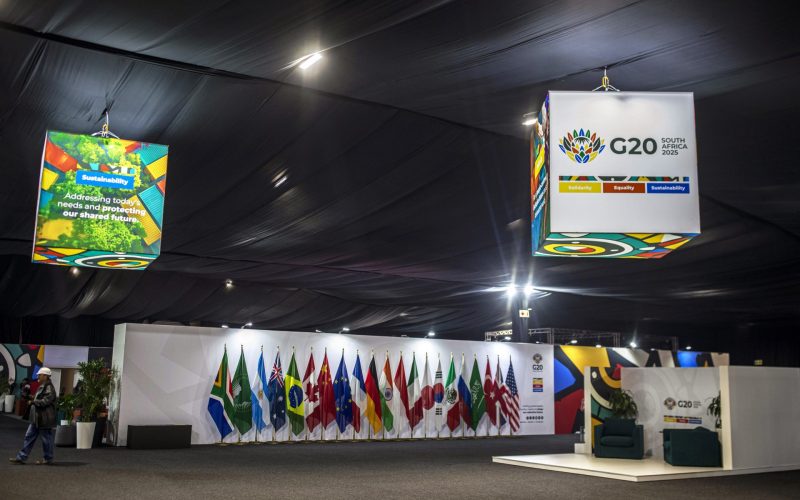The recent uprisings in North Africa, in countries such as Tunisia and Egypt, and the North Atlantic Treaty Organisation’s (NATO) enforcement of Resolution 1973 in Libya have received international attention. Despite initially having voted for Resolution 1973, South Africa is now highly critical of its implementation, championing instead the African Union’s position to find a political solution for Libya.
It was against this background that Deputy Minister of International Relations and Cooperation, Ebrahim Ebrahim, addressed a Speaker’s Meeting at SAIIA on Friday, 22 July 2011. His speech, “A Reflection on South Africa’s Engagements with the Middle East and North Africa,” attempted to explain South Africa’s engagement with countries in the MENA (Middle East and North Africa) region. South Africa’s engagement with the international community, especially the West, was also critically discussed.
The deputy minister explained that the MENA region, generally, is important to South Africa because South Africa is dependent on this region for oil and it is a destination for high value products, which in turn supports industrial development and employment objectives at home.
Since assuming a non-permanent UNSC seat for the second time, South Africa has had to deal with serious crises of civil unrest in this region, most notably in Libya. In response to the Libyan crisis, Resolutions 1970 and 1973 were tabled and passed by the UNSC. On both occasions South Africa voted in favour of the resolutions. Resolution 1973’s stated goal was to “take all necessary measures to protect civilians under threat of attack in the country” primarily through the establishment of a no-fly zone, subsequently implemented by NATO. Although having voted for the resolution and supported the no-fly zone, South Africa has since expressed dissatisfaction over the manner in which NATO has interpreted the resolution.
The deputy minister explained that South Africa’s support of resolutions 1970 and 1973 was due to the belief that their implementation would stop the threat to civilian lives and allow humanitarian aid to reach those in despair. Regime change, said Deputy Minister Ebrahim, was never part of the resolutions, but the west, through NATO, is now pursuing its own agenda. South Africa is maintaining its position, which is in line with the African Union’s (AU) position favouring a political solution, he said.
Deputy Minister Ebrahim also touched on the issuing of International Criminal Court warrants for Libyan leader Muammar Gaddafi, his son and the head of military intelligence saying that this undermined the efforts of the AU.
As governments in the Middle East continue to crack down on protestors, the most violent responses from a government have been reported in Syria.
The implementation of resolution 1973 and the regime change policy of NATO in Libya left South Africa disappointed and with a sense of betrayal towards the UK, France and the US. The Deputy Minister explained that this sense of betrayal could prevent South Africa in the future from supporting any resolution tabled by these nations. Indeed, South Africa has already refused to support the resolution on Syria, claiming it fears the resolution could once again become an excuse for military intervention. South Africa instead urged both the protesters and the government to act with constraint and respect human rights.
South Africa’s engagement with the Middle East and North Africa, especially within the UNSC has been described as inconsistent and at times naive by observers and analysts. Questions posed by the audience sometimes expanded the discussion beyond the MENA region, raising issues about both of the African Union’s approach to resolving conflict and of the AU’s ability to intervene in meaningful ways.
Insofar as South Africa’s position on Palestine, the deputy minister explained, the government’s position has been quite consistent in supporting the Palestinian appeal for a sovereign state independent from Israel. South Africa has also not changed its position when dealing with the Tunisian or Egyptian uprisings that occurred earlier this year. The position in Pretoria has consistently been to call for for a peaceful transition from autocratic rule to democracy, in line with the will of the people.
Deputy Minister Ebrahim also stated that change in Egypt and Tunisia were the result of years of autocratic rule, deprivation and corruption that left the youth of these countries disillusioned and hungry for change. The uprisings in these countries may not have started off with the intention to change the regimes but it evolved quickly into what the Deputy Minister referred to as “revolution” in the true sense of the word: a change of leadership. Lest he be criticised for advocating regime change in these nations while condemning it in Libya, he was quick to add that such change of leadership should, of course, be achieved through political negotiation.
There is also a possibility that the new leadership in Egypt could take a hardened approach towards the Palestinian question and this would strengthen the calls for the creation of a Palestinian state. The deputy minister welcomed the reconciliation efforts by Fatah and Hamas and stated the reconciliation would lead to a united and stronger negotiating position for all Palestinians. He also reiterated South Africa’s support for the establishment of a Palestinian state.
A question posed by a member of the audience concerned the humanitarian crisis in the Horn of Africa and South Africa’s role, especially, in alleviating the humanitarian crisis in the region. The response from the Deputy Minister was that South Africa was engaging with Gift of the Givers and other non-governmental organizations to assist with the crisis and would make official funding available for a R1 million contribution.
Commentary
The famine in the Horn of Africa is worsened by the ongoing instability in Somalia. Kenya is worse hit by the influx of refugees from Somalia and Dadaab refugee camp houses more than 400 000 people at this stage. Once again Africa’s reaction has been slow, in contrast the US has donated more than $450 million and the public in the UK has raised more than 23 million pounds for the victims of famine in the Horn.
South Africa as a political, economic and military leader on the continent should act more swiftly and with more commitment to such crises. It is counterproductive to criticise military intervention by the West in Libya but leave humanitarian intervention in the Horn to the West to deal with. South Africa and the continent should more clearly define “African problems that need African solutions” and when the West should intervene.
The international system is fluid and it is sometimes necessary to stop groups from abusing their powers, Libya being a case in point. Muammar Gaddafi used language that the world last heard before the genocide in Rwanda. The international community has acted responsibly this time and stopped government forces from killing more civilians. The implementation of the resolution is where South Africa and Africa could have played a more active role but, because of their slow response, western powers seized the opportunity to pursue their own interest.
The South African government’s response to the “betrayal” of the West should not be to oppose all resolutions tabled by the UK, US and France because this will be in contradiction of its own stance on dialogue. Former President, Thabo Mbeki, remarked that Africa should stand up against the West, a point reiterated by Deputy Minister Ebrahim when he stated that South Africa will not be pushed around anymore. It is clear that South Africa wants to play a more assertive role within the UNSC. Such a role, however, brings the responsibility to keep one’s own “backyard” in order.
In the Deputy Minister’s view NATO does not have a credible track record when it comes to successful interventions and he cites Afghanistan as an example. Why did South Africa then support the resolution on Libya? Because the African Union could not enforce the no-fly zone; the only group that could was NATO. South Africa should make sure in the future that it chooses sides before signing resolutions because changing one’s mind afterwards does not reflect well on one’s ability to read the situation and act upon it.
A peaceful political solution through dialogue is how the South African government wants to address conflict and ensure international peace and stability. Dialogue did end Apartheid in South Africa, but this does not mean that all conflicts can be ended in this way. As one member of the audience pointed out, dictators, by their nature, do not like to negotiate with opposition members and certainly not if the intent is to topple their regimes.








